Reading Improvement Normal Worksheets for 6-Year-Olds
7 filtered results
-
From - To
Discover our engaging Reading Improvement Normal Worksheets designed specifically for 6-year-olds. These worksheets offer a fun and interactive way for young learners to enhance their reading skills with a variety of exercises, including word recognition, short passages comprehension, and vocabulary building. Each worksheet is carefully crafted to cater to the developmental level of early readers, helping them build confidence and proficiency in their reading abilities. Ideal for at-home learning or classroom activities, our printable worksheets make reading practice enjoyable. Give your child the tools they need to succeed in reading while fostering a lifelong love of books and learning!
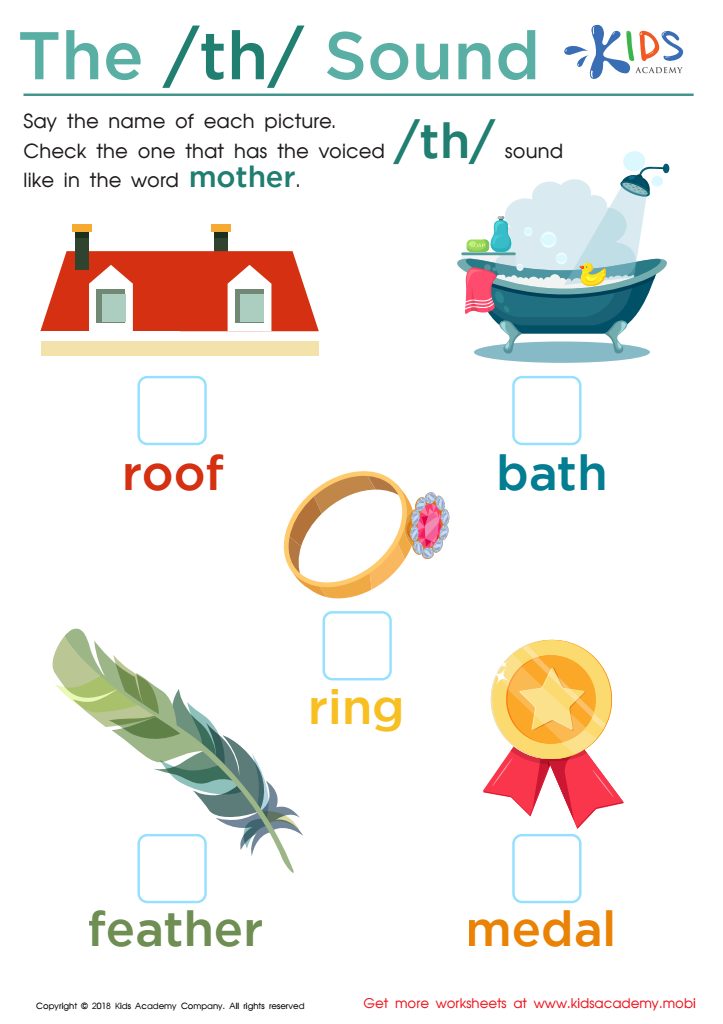

The /th/ Sound Worksheet
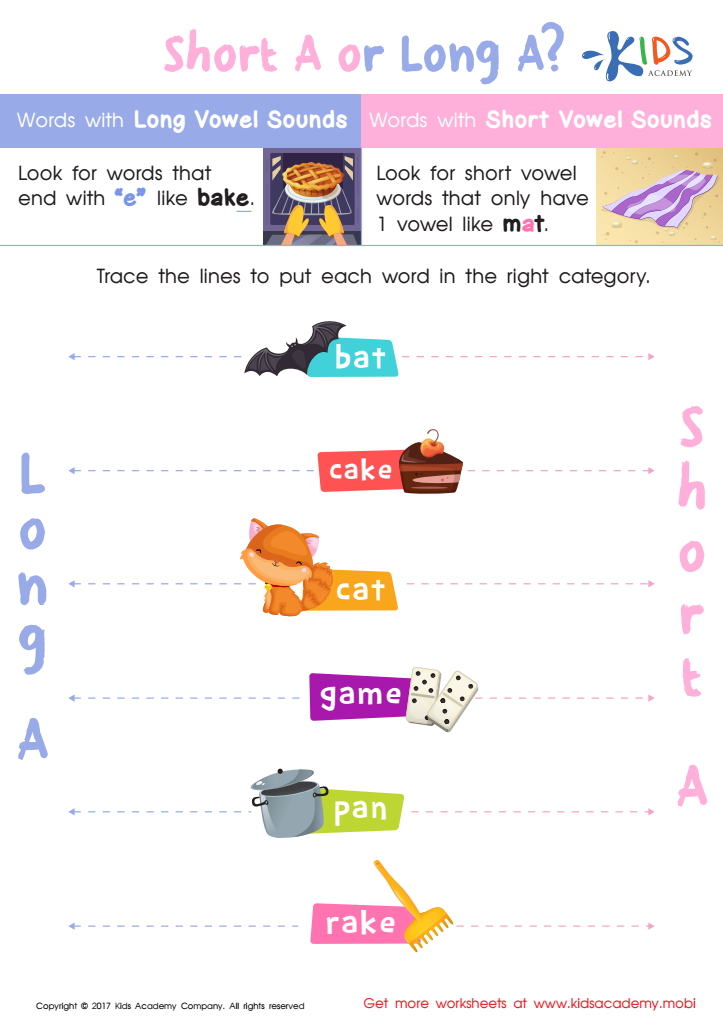

Short /a/ or Long /a/? Worksheet
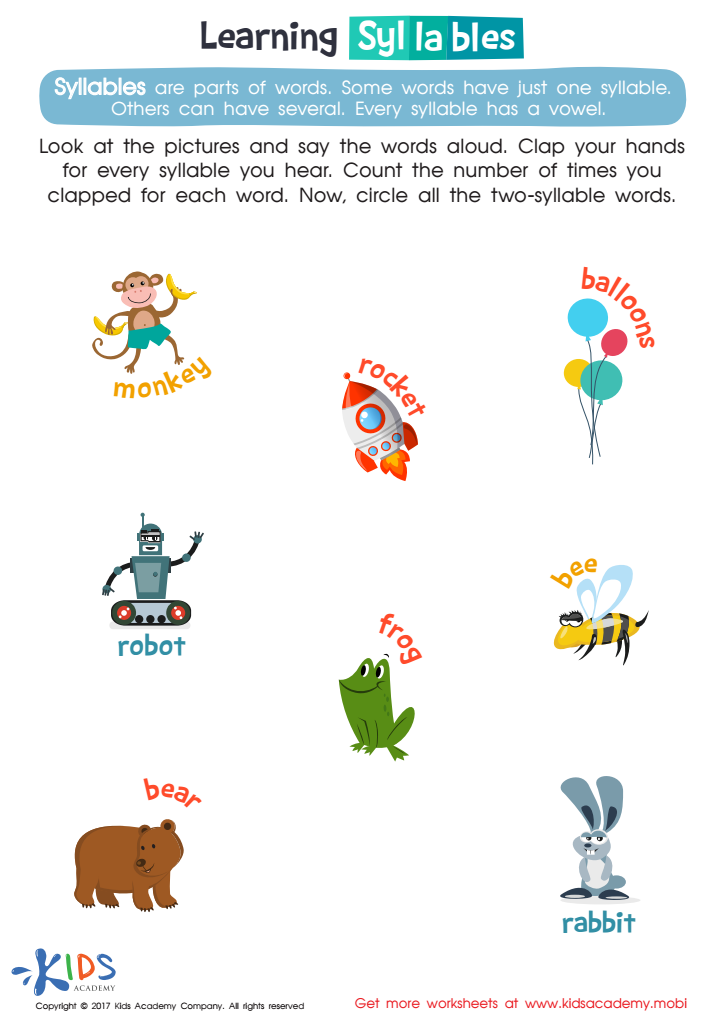

Learning Syllables Word Structure Worksheet
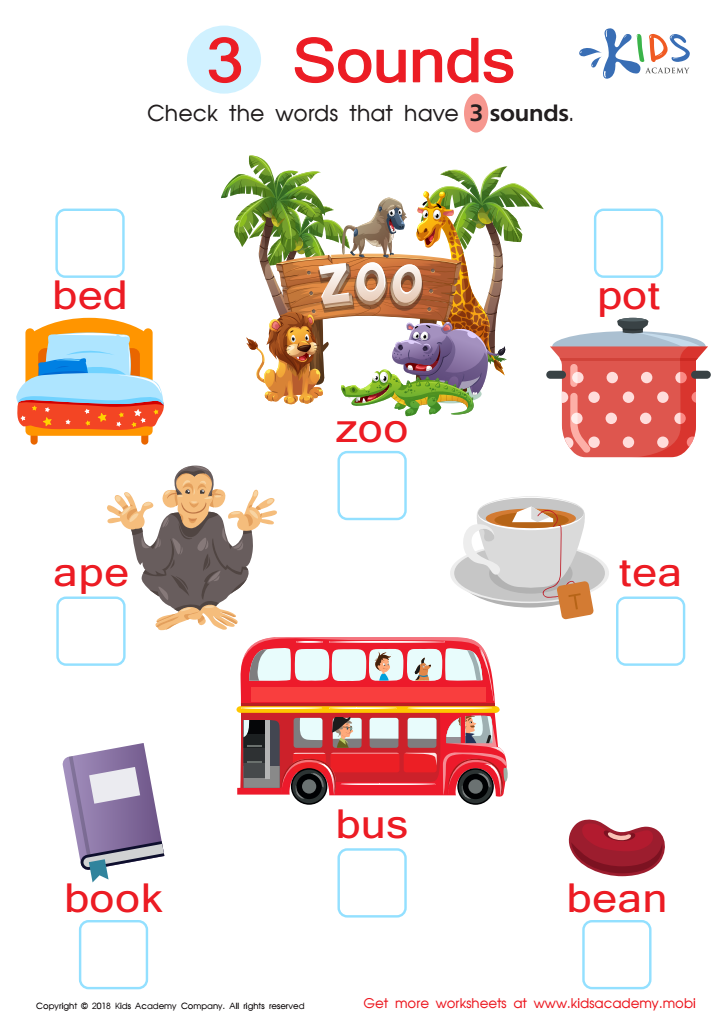

3 Sounds Worksheet
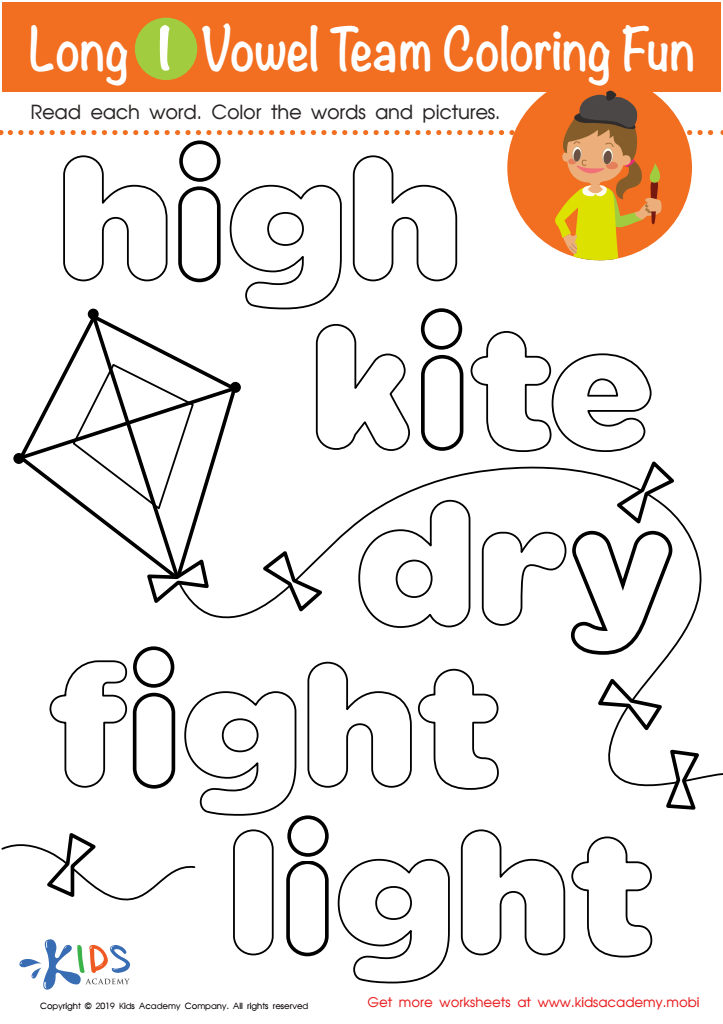

Long I Vowel Team Coloring Worksheet
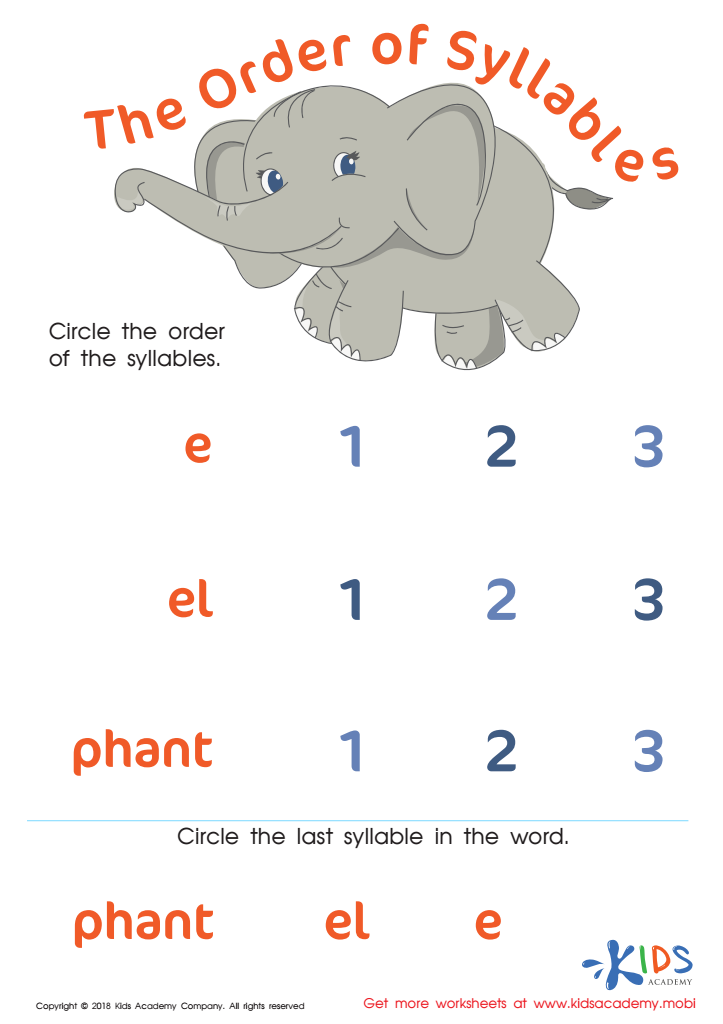

The Order of Syllables Worksheet
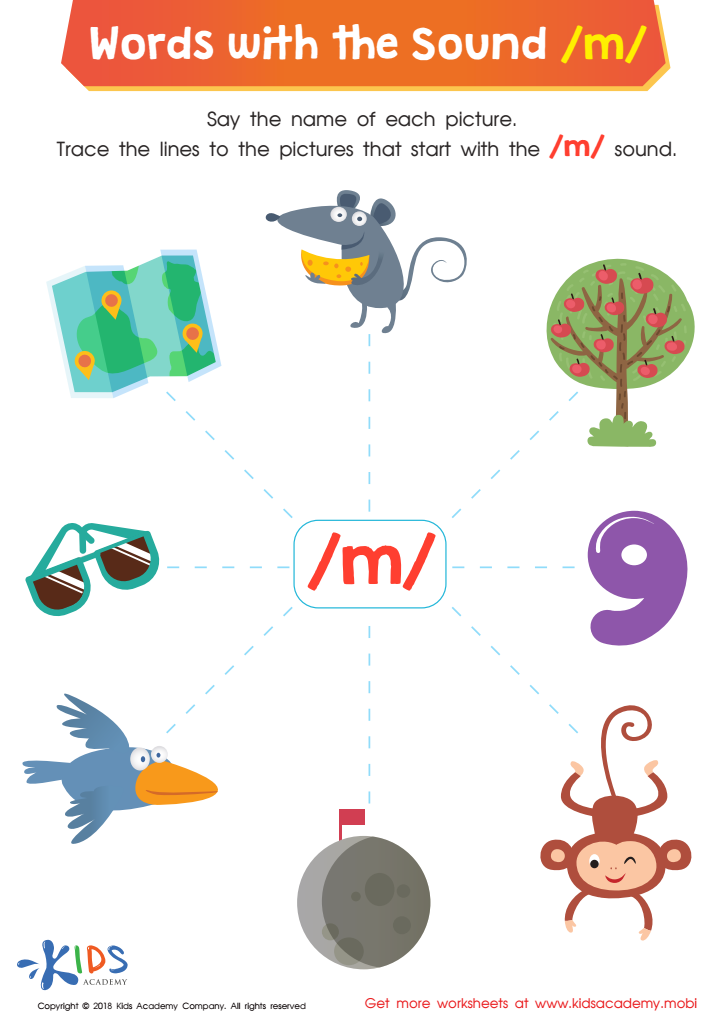

Words with Sound M Reading Worksheet
Reading improvement in 6-year-olds is crucial for several reasons, making it a priority for both parents and teachers. Firstly, this age marks a significant developmental stage in literacy skills. Children begin to transition from learning to read to reading to learn, which is vital for their overall academic success. A solid foundation in reading not only enhances comprehension but also boosts confidence and fosters a lifelong love for learning.
Secondly, early reading skills are linked to future educational outcomes. Children who struggle with reading in their early years are more likely to face challenges in later grades, leading to potential gaps in knowledge and increased frustration. By investing time in reading improvement, parents and teachers can prevent these issues, ensuring children acquire the skills needed to succeed across all subjects.
Moreover, reading together enhances parent-child bonding. When parents engage with their children in reading activities, they create a positive learning environment. Teachers, too, play a pivotal role by implementing targeted strategies that cater to diverse learning styles.
Ultimately, supporting reading improvement at this critical stage lays the groundwork for effective communication skills, critical thinking, and higher self-esteem. By prioritizing literacy, we cultivate a generation of confident, capable learners ready for future challenges.

 Assign to My Students
Assign to My Students
















